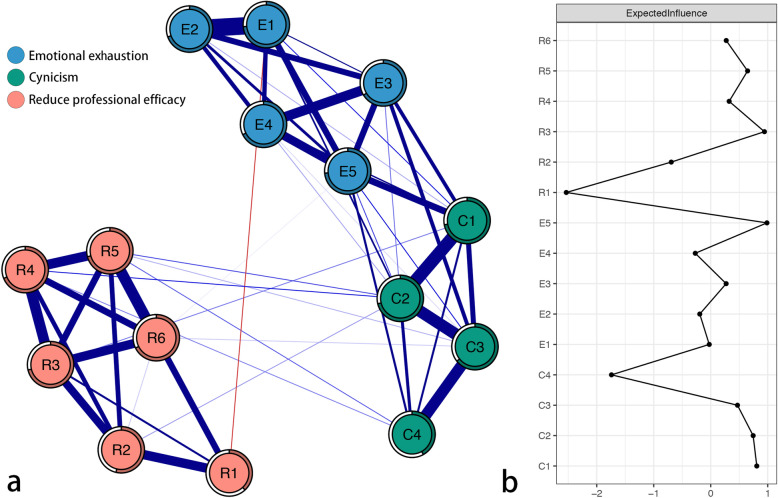Fig. 1.
Item network of the Maslach Burnout Inventory (MBI-GS) in Chinese nurses. Note: (a) Blue edges represent positive correlations, and red edges represent negative correlations. The thickness of the edge reflects the magnitude of the correlation. The rings around nodes depict their predictability. (b) Centrality plot depicting the expected influence of each item in the network (z-score). E1 = I feel emotionally drained from my work; E2 = I feel used up at the end of the day; E3 = I feel tired when I get up in the morning and have to face another day at work; E4 = Working with people all day is a real strain for me; E5 = I feel burned out from my work; C1 = I have become more callous toward work since I took this job; C2 = I have become less enthusiastic about my work; C3 = I doubt the significance of my work; C4 = I have become more and more indifferent in the contribution of my job; R1 = I deal effectively with the problems of clients; R2 = I feel that I am contributing to my company; R3 = In my opinion, I am good at my job; R4 = I feel very happy when I accomplish some tasks of my job; R5 = I have accomplished many worthwhile things in this job; and R6 = I am confident that I can accomplish all tasks effectively

